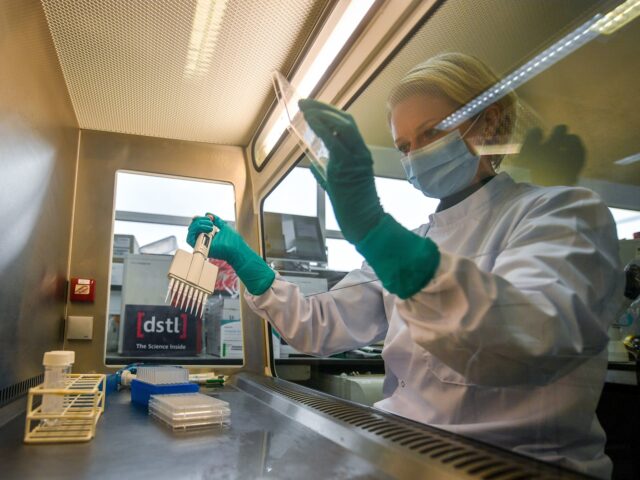British scientists at the secretive Porton Down laboratory have begun developing a new group of vaccines in order to combat an unknown future pandemic, dubbed “Disease X”.
At the Porton Down defence technology campus in Wiltshire, England, scientists are working on new vaccines to confront a series of current animal viruses that are believed to pose a threat of transmitting to humans and spur a crisis similar to that of the Chinese coronavirus.
While they have identified several possible “high-risk” pathogens, such as bird flu, hantavirus, and monkeypox, which virus could break through is currently unknown and therefore the project has the remit of combatting “Disease X”.
The 200 scientists working on the project have claimed to have already developed the world’s first vaccine for Crimean-Congo haemorrhagic fever, which spreads through tick bites and has a mortality rate of 30 per cent. The vaccine is said to be currently in the early phases of clinical trials on 24 volunteers.
In an interview with Sky News, the head of the UK Health Security Agency (UKHSA), Professor Dame Jenny Harries said: “What we’re trying to do here is ensure that we prepare so that if we have a new Disease X, a new pathogen, we have done as much of that work in advance as possible.
“Hopefully we can prevent it [a pandemic]. But if we can’t and we have to respond, then we have already started developing vaccines and therapeutics to crack it.”
UK scientists have begun developing vaccines as insurance against a new pandemic caused by an unknown "Disease X".
The work is being done at the government's high-security Porton Down laboratory complex in Wiltshire.@SkyNewsThomas has more 👇https://t.co/YH3fdfgQ7u pic.twitter.com/eBk0WkAE5Y
— Sky News (@SkyNews) August 7, 2023
Prof Harries claimed that factors such as urbanization and climate change are making it more likely for pandemics to emerge on a global scale.
“Some of that is because of things like urbanisation where you may get virus jumping into humans [living close-by], as we’ve seen with bird flu.
“And some of it is because of climate change where you get things like ticks and mosquitoes moving to where it was previously cold and is now becoming increasingly warm.
“So this is a growing risk agenda. But it’s one we can use our science actively to prevent human impact.”
The professor said that the work being done at Porton Down is part of a global effort to be able to develop a novel vaccine within 100 days of a new pathogen emerging among the public with the potential of turning into a pandemic.
“It would normally take five or 10 years. For COVID it was around 360 days,” Harries said. “So this is a really high ambition. But for some viruses, it is definitely possible.”
The secretive military research facility is also still developing new strains of the Chinese coronavirus, to reportedly expose them to blood antibodies and test their ability to infect people. Porton Down is also responsible for housing some of the world’s most dangerous viruses, including ebola, strains of which are stored in freezers at the site. After Russia launched a novichok attack in Salisbury, United Kingdom in 2018, it was to Porton Down the samples went for testing.
UK Govt Considering Wuhan Lab Leak After Previously Claiming Proximity to Outbreak 'Entirely Coincidental' https://t.co/KN1MSU5Fh4
— Breitbart London (@BreitbartLondon) March 11, 2023

COMMENTS
Please let us know if you're having issues with commenting.